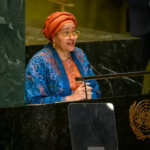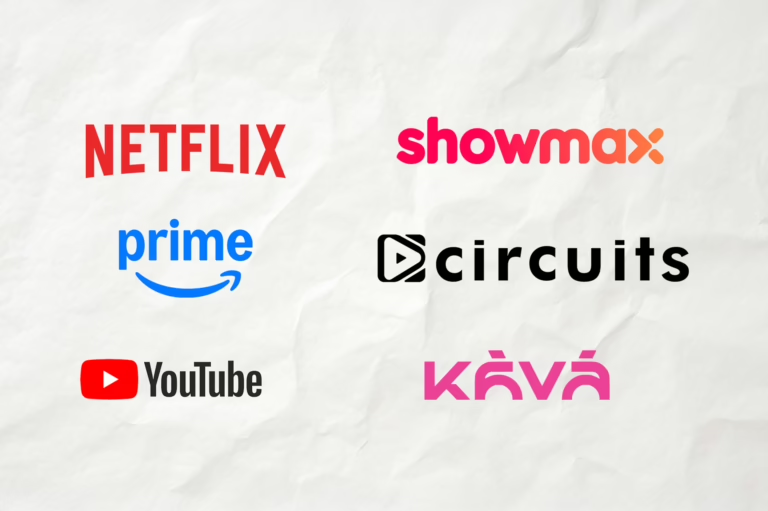Over the past weekend, Kava-a new streaming service developed through a partnership between Filmhouse and Inkblot-made its debut. This addition joins a growing list of indigenous platforms such as Circuits, Showmax, Ebonylife Plus, and Iroko TV, all aiming to resolve the persistent launch/” title=”Kava.tv Debuts with Exciting Free Streaming for the First 24 Hours…Don't Miss Out!”>distribution challenges facing Nollywood. However, the launch was met with a wave of skepticism from dedicated Nollywood enthusiasts.
Concerns Over Market Saturation and Consumer Spending
Vanessa Ohaha, a respected fashion and culture writer, voices apprehension about the potential oversaturation of streaming services in Nigeria, especially as the average consumer’s purchasing power continues to decline. She remarks, “It’s ironic that instead of fostering collaboration, the immediate response to Nollywood’s distribution woes is to flood the market.” Similarly, IkeGod, a well-known reviewer of books and films, echoes this sentiment, wishing for a consolidated streaming platform rather than multiple fragmented services.
Audience Distrust Rooted in Past Experiences
This skepticism extends beyond calls for collaboration; it stems from a deep-seated mistrust among Nollywood’s audience. The industry has witnessed several local streaming platforms launch with grand promises, only to fall short of expectations. The departure of global giants like Netflix and Amazon Prime Video from the Nigerian market has only intensified this wariness. Viewers have grown accustomed to subpar content quality, which has eroded confidence in new entrants.
Potential Upsides of Increased Competition
Despite these valid concerns, the collective doubt might overshadow the potential benefits that a competitive streaming environment could bring. Historically, platforms like Iroko TV launched in a near-monopoly setting, which arguably limited their growth and innovation. The current influx of streaming services could stimulate a healthy rivalry, compelling providers to prioritize quality over sheer volume-an area where Nollywood has often been criticized.
Competition can drive platforms to justify subscription fees by offering superior content, thereby elevating production standards. This dynamic could also attract renewed interest from international streaming companies, encouraging them to reconsider Nollywood as a viable market for investment and collaboration.
Global Streamers’ Shifting Strategies and Local Pressure
When Netflix and Amazon Prime Video initially entered Nollywood, they made significant investments with original productions like Far From Home and She Must Be Obeyed. However, momentum has since waned, with Prime Video withdrawing from the scene. The emergence of local competitors such as Kava and Circuits introduces new pressure on these global giants. To maintain their foothold, they may increase funding for Nigerian originals, boost marketing efforts, or offer more lucrative licensing deals.
Addressing Nollywood’s Distribution Challenges
One of the most pressing issues in Nollywood is the lack of effective distribution channels for films and series after their initial theatrical or streaming runs. For example, in August, approximately sixteen Nollywood titles are scheduled to leave Netflix. Without proper platforms to host these works, many risk fading into obscurity or being relegated to YouTube, where monetization and long-term revenue potential are severely limited.
Uploading films to YouTube often marks the end of their commercial lifecycle, as free availability diminishes their premium value. Conversely, controlled, subscription-based platforms enable multiple revenue streams for the same intellectual property (IP)-from box office ticket sales and streaming subscriptions to television syndication and pay-TV licensing.
Case Study: The Enduring Success of ‘Jenifa’s Diary’
Funke Akindele’s Jenifa’s Diary exemplifies the benefits of diversified distribution. Starting as a modest TV series, it captured widespread attention before evolving into the successful cinematic release Everybody Loves Jenifa. This franchise continues to generate value through re-releases and licensing opportunities. A thriving competitive streaming landscape could empower more Nigerian filmmakers to retain greater control over their IPs, maximizing their projects’ longevity and profitability.
Empowering Filmmakers and Reviving Dormant Projects
Without robust local distribution, Nollywood remains heavily reliant on foreign streaming platforms’ commissioning decisions. The rise of indigenous streaming services shifts this balance, placing filmmakers in the driver’s seat regarding their narratives. This environment also opens doors to resurrect stalled projects like Blood Sisters and Far From Home, as well as breathe life into TV pilots and scripts currently gathering dust in development folders.
Balancing Risks and Opportunities in the Streaming Landscape
While the proliferation of streaming platforms carries the risk of market oversaturation, it simultaneously promises increased investment in content creation, job opportunities, and richer storytelling. More platforms mean intensified marketing efforts and expanded audience reach, which can collectively stimulate Nollywood’s growth.
The true threat lies in allowing justified skepticism to prevent audiences and creators from engaging with these new services, potentially dooming them before they have a chance to flourish. Embracing curiosity over cynicism could be the key to transforming this latest chapter in Nollywood’s evolution into a genuine success story.























0 Comments